|
The first time I went to a spiritual retreat was during my freshman year in high school. We all crowded into the basement of the church near our school and held forced conversation with classmates we barely knew. What I thought was going to be a dreadful day ended up being a wonderful experience and helped me to grow not only in my social life, thanks to my newfound forced friends, but also helped me to grow in my spirituality. Since then, I have attended numerous retreats throughout my life, but some of my most memorable ones are those which were in a new space.
Later in my high school career, I joined a Life Teen group which went on off-site retreats twice a year, around Thanksgiving and Easter. These retreats held about sixty high school students from our group, and we would gather at local retreat houses for a weekend retreat. It was here that I really began to learn the importance of these off-site retreats and enjoy these new moments in new places. There was something so special about praying together, eating meals together, and spending quality time with the same group of people that really made me appreciate these experiences. I remember dreading the bus ride back to the church, because that meant that our time together was coming to a close. Personally, I found that I was much more keen to speak up and converse in deep conversation, and feel vulnerable in these retreat settings. In a way, it felt as if being in a new space felt like a new start. Similarly, my first weekend of college, I went on Freshman Retreat. I remember all the retreat leaders coming to the dorms and my parents encouraging me to sign up. I was terrified! I had no friends going on the trip, I was away from my roommate for the first time, and I had no idea what to expect. The weekend ended up being fantastic! We went kayaking, I made new friends, shared a cabin with classmates I’d never met before, and we ended the weekend with a beautiful eucharistic adoration and Mass. What I thought was going to be the most awkward and unfamiliar experience, ended up being filled with joy, laughter, and only falling into a lake once (that was the real miracle of the retreat!). Here at the Pallottine Seminary at Green Hill, we offer a full events facility for day events and can accommodate groups (smaller than thirty-five adults) for retreats, board meetings, or other similar group meeting needs. Additionally, there is a chapel for Mass, prayer, and adoration, a dining room for group meals, and several outdoor locations for break out groups or just to walk around our manicured fourteen acre landscaping. Just walking around Green Hill is such a relaxing experience; it is so quiet and serene, and such an enjoyable place to visit. Green Hill is even fully equipped with an audio / visual studio! Here, guests can record podcasts, film videos, and even host webinars from our studio space, which includes a teleprompter, lighting, microphones, and other items you may need. Our dedicated meeting space, the Queen of Apostles Room, was recently renovated to include a brand-new camera, microphone, and speaker system allowing for ease of use for events with virtual participants. Truly, most any amenity you may need for your group, you can find here. It is our hope that Green Hill can help to facilitate all your needs and enhance any retreat or group meeting experience. Retreats have the ability to be an experience that can be both connective and solitary. Through retreats, I found my spiritual life growing not just through my own words and thoughts, but through those of whom I was journeying with. We hope that Green Hill can be the backdrop for your next group meeting space and facilitate all the meaningful conversations to come for you and your ministry. To learn more about Green Hill, click here: https://www.catholicapostolatecenter.org/green-hill.html
0 Comments
Spring is such a beautiful season and is usually filled with many engagements and weddings after Easter. Thinking of my own time of engagement, I remember everything seemed like a whirlwind! Our engagement was about 11 months long, and we were certainly appreciative of the planning time we had in going through marriage preparation without rushing.
Thankfully, my husband and I were both on the same page when it came to getting married in the Catholic Church. Prior to our engagement, we had already discussed wedding budget expectations, length of engagement, and a wedding location. I was grateful we had these conversations so early. As my husband, friends, and family can all attest to, I am a planner. To no one’s surprise, I set up an appointment the day after our engagement to meet with our church to begin our marriage preparation process. (Of course, it could have been from my excitement as well!) We learned SO much throughout our marriage preparation process. Hopefully we can share some helpful thoughts with those who are currently planning or will plan for a Catholic wedding in the future. 1. During engagement, meet with your priest as often as possible. Both of us wholeheartedly agree that meeting with our priest early and often was the most important part of our marriage preparation. We met our priest throughout our engagement for more than the required meetings. And it was quite fun! Engagement is a time for preparing for marriage, which lasts a lifetime – not one day. Investing in your relationship both together and with your priest is such a crucial part of this preparation and should take priority. Our priest tailored our conversations to our unique relationship and covered topics we had not considered. 2. Read marriage books with your fiancé/fiancée. Both my husband and I thoroughly enjoy reading, and we highly recommend this activity for engaged couples. Reading books, such as Fulton Sheen’s Three to Get Married, brought us closer together as we discussed the theology and profundity of the marriage sacrament. Consider it as your own little book club! Other books we enjoyed reading include:
3. Consider utilizing a Catholic wedding planning guide to help you prepare. Think about utilizing a Catholic wedding planning resource that can help cut down on the amount of time you spend researching and planning. A dear friend gifted me Invited: The Ultimate Catholic Wedding Planner by Stephanie Calis, and it was an incredibly helpful resource. Read stories, wedding tips, and marriage preparation advice on Spoken Bride, a Catholic lifestyle blog for brides and newlyweds. I found many of the blog posts to be helpful in planning a Catholic Mass as the authors and featured brides shared many details I had not thought of before or of which I was not aware. 4. Use your engagement as a time to focus on building a foundation for your marriage. When wedding planning has you frazzled or conflicted with your future spouse or family members, remind each other that your wedding day is about the marriage sacrament. Everything else will fall into place. The details that matter will come to fruition. Pray for or with your spouse, friends, or family members when tensions arise. 5. Enjoy the process of planning your wedding Mass. Other than your funeral, your wedding Mass is the only entire Mass you’ll get to plan! This was our favorite part of the wedding planning process. We encourage you to look into the different types of Catholic traditions, symbolism, and moments of meaning that can be incorporated into your wedding Mass. Do you have a favorite saint that can be included with song, prayer, or other elements? Perhaps you’ve always envisioned sharing a bouquet of flowers with the Mary statue at your church, or maybe you wish to incorporate the wedding lasso or arras ritual. We incorporated the Croatian tradition of holding a crucifix while saying our vows. Consider your favorite Mass songs and readings. Do you have a theme or message for your guests? Ours was: We love because God first loved us. Our songs, readings, Psalm and other selections were made with this theme in mind. 6. Take Natural Family Planning classes together. The USCCB states that Natural Family Planning (NFP) is “the scientific, natural, and moral methods of family planning that can help married couples either achieve or postpone pregnancy.” NFP honors both the love-giving (unitive) and life-giving (procreative) aspects of God’s design for married love. Before your wedding, you’ll want to have had several months of learning with an instructor and practicing your choice of one of the many NFP methods. 7. Participate in an engagement retreat. Typically, attending an engagement retreat is a diocesan requirement as part of marriage preparation. Our church held a day-long retreat complete with Mass, meals, prayer, books, and talks from mentor couples at various stages in life. Hearing anecdotes and tips from our mentor couple and the other couples leading the retreat was particularly helpful to us. Check with your diocese and parish on what retreats are required or available, such as Engaged Encounter. 8. Take a financial planning course together. We highly recommend taking a financial planning course as a couple. It is so important to be on the same page financially, as this area can be one where many future disagreements begin. Going through the process of making a budget, knowing the amounts and kinds of debt each person may or may not be bringing into the marriage, sharing financial goals, and understanding how each person views money is crucial. We actually went through Financial Peace University’s CDs just before our engagement (a previous college graduation gift from my parents – thank you, Mom and Dad!), though there are other financial planning courses such as Wallet Win. 9. Pray together. Praying as a couple is such an important habit that will strengthen your marriage and build a foundation for your spiritual life together. However you prefer to pray, it’s important to pray for and with each other. My husband and I chose, or rather God chose for us, to pray a constant string of novenas and alternating who chose the next novena when the previous novena ended. Our prayer routine has changed in different ways since marriage, but we have always continued to pray every night together – deepening the God-husband-wife relationship. 10. Practice making sacrifices for others and one another. As you may have heard and witnessed, marriage is an act of dying to self. Following in Jesus’ example, we sacrifice ourselves in everyday ways for our spouse and children. In a 2009 pastoral letter by the USCCB, it is said, “There is no greater love within a marriage and a family than for the spouses and children to lay down their lives for one another. This is the heart of the vocation of marriage, the heart of the call to become holy.” By volunteering together and practicing little acts of sacrifice for those around us and your beloved, you participate in strengthening the muscle of self-gift – one you will flex daily in marriage. Click here for more resources on Marriage and Family. Recently, I went on a powerful retreat put on by the Diocese of Arlington called “Recovering Origins: A Unique Healing Program for Adult Children of Divorce.” While we are all indeed wounded, this retreat focuses on themes relevant specifically to adult children of divorce and attempts to isolate and work through the particular wounds associated with those who have divorced parents. Feeling ignored for many years due to societal pressures and shifting cultural norms, the group on this retreat seemed to breathe a collective sigh of relief: “we are finally being seen.” It would indeed take many pages to delve into the issues that we as adult children of divorce carry, and there has recently been quite a bit of literature on the subject. While this is not the forum to add to this literature, I will say that this retreat, and those participating, left an incredible impression on me. This group of people were quite possibly the most sensitive, respectful, empathetic, faithful, and encouraging group of people I have ever encountered. In all of our discussions about the wounds we carry, there was an air of kindness, understanding, and respect. Had I met these people outside of this retreat, I never would have guessed the depths of the wounds they carry. Through our discussions, one major thing I realized that was common among the group was that they did not recognize in themselves the profound goodness that I saw in them. Through the mess of their parents’ divorces, I sensed a loss of knowledge of their own inherent goodness. What is important about the word inherent? It is important in that it calls on us to remember our divine filiation; that we are first and foremost adopted children of God and we receive our goodness, identity, and worth through this fact alone. God created us in His goodness, not because He needed us, but because He wanted us. This is what is inherent in each of us— this divine filiation, this belonging to the Creator of all creation. This, indeed, is our core identity—but it often gets lost in a child when their parents go through a divorce. This retreat, I believe, helped us to recover this important fact. Don’t we all, in some way or another, feel this loss of our identity, of our inherent goodness? I suspect the answer is yes. If so, how do we move forward? First, I believe we start by recalling—daily if we have to—that our core identity, goodness, and worth is rooted in Jesus Christ through divine filiation. We can do this through spiritual practices such as quiet prayer, Gospel reading, or Adoration. Second, as I learned on the retreat, we must have mercy on ourselves for how we reacted or behaved during our most painful moments. We must not underestimate ourselves nor our feelings, but rather appropriately grieve through them by allowing the Father to walk with us as we do so. And lastly, it is important to allow the Father to gaze at us with His love, and let that love transform our wounds into strengths. In these ways, you will “recover the origin” of your identity as a son or daughter of God, and live fearless, bold, Christ-centered lives, regardless of whether you are an adult child of divorce or not. For more information on the Recovering Origins Retreat and the Life-Giving Wounds ministry, please click here. "Rather than seeing summer as the “down time” at a church, commit to approach the coming months with the intention of fostering experiences of active service, quiet prayer and contemplation, and stimulating intellectual work or professional training."
Having worked at a handful of churches, I have observed that the summer is the slowest time of year for parish life. Parishioner’s schedules are all over the place, especially if there are children or teenagers involved, with vacations, camps, etc. During the summer, parish programs tend to slow down (However, some parishes will run a Vacation Bible School, or similar camp-like program). But summer doesn’t have to be a long spiritual nap. In fact, the summer can be a very important time and opportunity for a church, especially for church staff. How you approach the summer can greatly shape the year ahead. Besides the celebration of the Mass, the summer provides a number of unique opportunities for spiritual growth in areas that aren’t always possible throughout the rest of the year. Here are a few opportunities for spiritual growth you might consider for your parish. Parish Mission Trips Many parishes host mission trips—whether local, national, or international. Consider prioritizing mission trips and extending the opportunities to different ages and areas. Some of my best summer memories are the trips I went on to rural Appalachia in high school. These trips instilled in me a call and love for ongoing service in my faith. Plan opportunities not only for parish staff, but also for families to serve together. Make it memorable and accessible. Let missions be an opportunity to get beyond the model of Christian ministry as something that only happens at your church. And remember to report back on the trip through photos, stories, or results to your parish. People love hearing about the activity in their parish community. It creates a sense of energy and momentum that can get carried into fall activities, especially in a youth ministry context. A service trip provides something concrete participants can point to and share with friends, family, or parishioners. I’ve also found that the more “on the fence” parishioners that are hesitant to get involved often take that first step after seeing the fruit of service. Most importantly, participants inevitably leave with a transformed, deeper experience of their faith and a lived experience of Jesus in his ministry to the broken places in need of healing. To find some long-term and short-term mission and service opportunities, click here. Retreats Work at the church never stops, but it does slow down. When is the last time your staff or ministry team spent time away, even just for a day or afternoon, from the office environment together and prayed? There are gorgeous retreat centers and shrines in every state that too often only get visited in the dead of winter. The Christian writer and philosopher Dallas Willard once said, “The greatest threat to devotion to Christ is service for Christ.” He was talking about our tendency to view prayer and contemplation as less fruitful compared to active ministry. Prayer is essential not only to any parish ministry, but to the Christian life overall. Invite your team to pray regularly or be renewed by attending a retreat. Priests are also required by Canon Law to take a retreat. Make sure your parish priest is getting the time off he needs to pray and reflect. If you or your staff is on retreat, pray for your parish priest throughout that time. Staff Development With all the conferences, classes, symposiums, etc., that happen on college campuses or churches throughout the country, summer is a great time to invest in the development of staff and volunteers. Look for opportunities to enhance your team’s intellectual and professional skills. Be flexible and open to new ideas where you and your staff can connect with other professionals or get inspired. If your parish has room in the budget, propose a conference you are passionate about or that will help your work. If you’re a liturgy or music director, take your ministers or musicians out to see a concert of sacred music or take a tour of a cathedral or museum. Rather than seeing summer as the “down time” at a church, commit to approach the coming months with the intention of fostering experiences of active service, quiet prayer and contemplation, and stimulating intellectual work or professional training. You might notice that rather than mustering the energy to get “back in gear” as summer draws to an end, you will feel renewed, enriched, and equipped for the “busy time” ahead. Moreover, you may draw closer to other others working at the parish and be more integrated as a staff, youth group, or ministry team. This can be a leaven to your ministry and parish for the rest of the year. Finally, make sure you have some fun while you’re at it; it is summer after all. *This post was originally published on the Ad Infinitum Blog on June 2, 2016. “Rejoice! Hidden within your life is a seed of resurrection, an offer of life ready to be awakened.” -Pope Francis The world in which we live is filled with distraction and noise. I realized this in a deeper way as a new mom nursing my newborn at all hours. During those late night feedings, I needed something to keep myself awake and found myself gravitating towards my phone more and more. It was easy to hold and look at in the dark, and I found it nearly impossible to concentrate on reading a book, let alone holding it open as my newborn moved about. By the time Lent rolled around, I had been watching online TV episodes, checking my various social media feeds consistently, or scrolling through house listing websites. In our culture, this type of electronic consumption is easy to fall into. And while these sites or activities are not necessarily wrong or evil, I felt that I was more and more consumed by things of this world. In prayer, I felt the Lord asking me to be consumed with Him rather than by materialism, technology, or my own desires. What we consume defines who we are and what we become. What started out as a way to keep myself awake in those exhausting first weeks and months of motherhood had become a small addiction. What if instead, I used those minutes and hours to pray, to be still with my thoughts, to be present to my son? I had a quiet Lent. Formally, I gave up “scrolling.” I did not look at social media feeds, online shopping websites, or TV shows. I also limited my consumption of music and movies. I felt that I had truly entered a desert and made an ongoing “silent retreat” without completely removing myself from the world. I was becoming a “contemplative in action” and realized that even as a parent and married person, I could still carve out time for Christ each day through silent reflection. Instead of consuming media, I prayed and I was silent. I used my phone only for Scripture reading or Catholic reflections. I prayed the Rosary and the Divine Mercy Chaplet. I read spiritual books. I thought of all the friends and family that had asked for my prayers. I offered up this media fast for them and for the needs of the world. This was hard. I noticed how many times my hand gravitated towards the screen. I noticed how much time I had spent behind one. Now that I have emerged from the season of Lent, I can’t help but wonder how I’ve changed. In his homily at the Easter Vigil this year, Pope Francis spoke of the changed faces of Mary Magdalene and the other Mary after they visited Christ’s tomb. The two brave women ventured out in the early hours of the morning “pale and tearful” and “walked like people going to a cemetery.” They had not yet encountered the Risen Lord. When they arrived, they were met with miraculous, life-changing news: “He has been raised just as he said!” The women leave rejoicing and run immediately to tell the disciples, to evangelize. Their faces are completely transformed. This leads me to reflect, “How has my face transformed this Easter season? Have I emerged from the tomb of Lent rejoicing?” Lent and Easter are about transformation—going from the tomb to new life. Christ is raised from the dead and extends this life to us all. He has opened the doors to our salvation. We don’t have to wait for death to experience this new life. By being consumed by Christ Himself, through prayer and most powerfully through the reception of the Eucharist, we are enabled to become Christ-bearers and share the joy of new life with all we encounter. Pope Francis invites us to experience and live this transformation in our everyday lives, saying: The heartbeat of the Risen Lord is granted us as a gift, a present, a new horizon. The beating heart of the Risen Lord is given to us, and we are asked to give it in turn as a transforming force, as the leaven of a new humanity. In the resurrection, Christ rolled back the stone of the tomb, but he wants also to break down all the walls that keep us locked in our sterile pessimism, in our carefully constructed ivory towers that isolate us from life, in our compulsive need for security and in boundless ambition that can make us compromise the dignity of others. After 40 days of penance and sacrifice, it’s tempting to go back to our old ways—to “carefully constructed ivory towers” and a “compulsive need for security.” “We can grow accustomed to living with the tomb,” Pope Francis cautions. This Easter season, we must decide to leave the tomb: to stay present, to pray, to choose to be consumed by God. I have learned that in so doing my life is made richer and more meaningful. When consumed by God, I am better able to be present to and love others. As we continue our victorious journey through the Easter season, I invite you to consider how your life has changed as a result of your Lenten journey. Have you emerged from the tomb? How has your face changed? For more resources on Lent and Easter, please click here. "Rather than seeing summer as the “down time” at a church, commit to approach the coming months with the intention of fostering experiences of active service, quiet prayer and contemplation, and stimulating intellectual work or professional training." Having worked at a handful of churches, I have observed that the summer is the slowest time of year for parish life. Parishioner’s schedules are all over the place, especially if there are children or teenagers involved, with vacations, camps, etc. During the summer, parish programs tend to slow down (However, some parishes will run a Vacation Bible School, or similar camp-like program). But summer doesn’t have to be a long spiritual nap. In fact, the summer can be a very important time and opportunity for a church, especially for church staff. How you approach the summer can greatly shape the year ahead. Besides the celebration of the Mass, the summer provides a number of unique opportunities for spiritual growth in areas that aren’t always possible throughout the rest of the year. Here are a few opportunities for spiritual growth you might consider for your parish. Parish Mission Trips Many parishes host mission trips—whether local, national, or international. Consider prioritizing mission trips and extending the opportunities to different ages and areas. Some of my best summer memories are the trips I went on to rural Appalachia in high school. These trips instilled in me a call and love for ongoing service in my faith. Plan opportunities not only for parish staff, but also for families to serve together. Make it memorable and accessible. Let missions be an opportunity to get beyond the model of Christian ministry as something that only happens at your church. And remember to report back on the trip through photos, stories, or results to your parish. People love hearing about the activity in their parish community. It creates a sense of energy and momentum that can get carried into fall activities, especially in a youth ministry context. A service trip provides something concrete participants can point to and share with friends, family, or parishioners. I’ve also found that the more “on the fence” parishioners that are hesitant to get involved often take that first step after seeing the fruit of service. Most importantly, participants inevitably leave with a transformed, deeper experience of their faith and a lived experience of Jesus in his ministry to the broken places in need of healing. To find some long-term and short-term mission and service opportunities, click here. Retreats Work at the church never stops, but it does slow down. When is the last time your staff or ministry team spent time away, even just for a day or afternoon, from the office environment together and prayed? There are gorgeous retreat centers and shrines in every state that too often only get visited in the dead of winter. The Christian writer and philosopher Dallas Willard once said, “The greatest threat to devotion to Christ is service for Christ.” He was talking about our tendency to view prayer and contemplation as less fruitful compared to active ministry. Prayer is essential not only to any parish ministry, but to the Christian life overall. Invite your team to pray regularly or be renewed by attending a retreat. Priests are also required by Canon Law to take a retreat. Make sure your parish priest is getting the time off he needs to pray and reflect. If you or your staff is on retreat, pray for your parish priest throughout that time. Staff Development With all the conferences, classes, symposiums, etc., that happen on college campuses or churches throughout the country, summer is a great time to invest in the development of staff and volunteers. Look for opportunities to enhance your team’s intellectual and professional skills. Be flexible and open to new ideas where you and your staff can connect with other professionals or get inspired. If your parish has room in the budget, propose a conference you are passionate about or that will help your work. If you’re a liturgy or music director, take your ministers or musicians out to see a concert of sacred music or take a tour of a cathedral or museum. Rather than seeing summer as the “down time” at a church, commit to approach the coming months with the intention of fostering experiences of active service, quiet prayer and contemplation, and stimulating intellectual work or professional training. You might notice that rather than mustering the energy to get “back in gear” as summer draws to an end, you will feel renewed, enriched, and equipped for the “busy time” ahead. Moreover, you may draw closer to other others working at the parish and be more integrated as a staff, youth group, or ministry team. This can be a leaven to your ministry and parish for the rest of the year. Finally, make sure you have some fun while you’re at it; it is summer after all. As a recipient of 8 years of Jesuit education, I, like so many others, can testify to the impact that St. Ignatius has had on my life. I have often wondered what makes St. Ignatius so popular. What about his spirituality lead to the largest order of priests in the world? What about his life has drawn students to his education for centuries?
There is an old phrase, “where the rubber meets the road,” that is often used to describe a moment of truth, or a time when something very important happens. St. Ignatius’ magnum opus was The Spiritual Exercises, a text written to guide a reader along a spiritual retreat. In the early 1500s, lay people could not go on retreat. People had to work each day just to survive. Even though there was a spiritual thirst, the general population did not have a way to bring Christ into their lives in a meaningful way. St. Ignatius sought a way to bring Christ into the daily life of all people, not just priests and monks. Because of the Spiritual Exercises, lay people were given a method in which to allow Christ into their daily lives, allowing Him to help shoulder their daily burdens. Now, people could fully experience the truth Christ had to offer. For St. Ignatius, a better way to express the old phrase would be “where the shoulder meets the cross.” In modern times, with so many opinions and an overabundant access to information, many often find it difficult to discover relevance in their lives. In times when the Church is often considered to be “out dated” and “not relevant,” St. Ignatius gives us proof that Christ desires to find us no matter where we are in our lives. St. Ignatius also showed us that in order to be found, we must be disciples. We must answer the invitation Christ offers with His simple words “follow me” (Mark 2:14). The success of the spirituality of St. Ignatius today shows the desire for Christianity that is relevant to one’s own life. St. Ignatius gave everything up and allowed Jesus into his life completely. In so doing, he was able to share his struggles and joys with the Lord. In following the spirituality of St. Ignatius, Christians today can bring Christ into their lives in a meaningful way, and can find Christ “where their shoulders meet the cross.” Suscipe by St. Ignatius Take, Lord, and receive all my liberty, my memory, my understanding and my entire will - all that I have and call my own. You have given it all to me. To you, Lord, I return it. Everything is yours, do with it as you will. Give me only your love and your grace. That is enough for me. Thomas Coast is a theology teacher and Assistant Director of Christian Service Learning at Notre Dame Prep in Scottsdale, Arizona. He is a graduate of the Echo Program at the University of Notre Dame. I remember the first time I felt true repentance. It was not because I got caught making a bad decision; not because I simply felt guilty; not because I thought about what others might think of me—all of which might be gateways to repentance, but not sufficient in and of themselves. I remember the first time I felt true repentance out of love of Christ and sorrow for the rejection of His love through my sin.
I was in a small chapel in the hills of Los Gatos on a five-day Ignatian Silent Retreat. The assignment on this particular afternoon was to spend time praying over and reflecting on your past sin, on how you had rejected God’s love and, in so doing, on how you had contributed to His pain on the Cross. It was a heavy day. I took a deep breath in the chapel and started remembering and reflecting on past sinful decisions. Some, I knew blatantly. Others seemed inspired by the Holy Spirit. I had not even realized how past decisions might have affected other people more than myself, and I was illuminated in such a way that I saw how my sins spread out like a web contaminating the lives of others. Tears flowed unguarded from my eyes. How could I have done such things? I placed myself within the crucifixion narrative and saw that I had joined the Roman soldiers with their whips, their taunts, their hammers. I had pierced my Lord. I felt terrible—like the scum on the bottom of a lake in the darkness. And then I felt Him. I felt His gaze from the tabernacle. He beckoned me, inviting my eyes to meet His own. “I can’t look back at you, Lord,” my heart said. “I’m too broken, too ashamed, too unworthy.” I kept looking down at my lap, afraid to meet His gaze. But the feeling of being looked at persisted, gently. After a few moments, I could no longer bear it. Anything, even Christ’s condemnation, would be better than avoiding Him. I looked up. And I met Love. I felt Christ’s presence in the tabernacle and saw Him looking at me as a bridegroom looks at his bride on their wedding day: joy, peace and love filling his face, eyes brimming with pride and tears and awe. The gaze with which Christ looked at me turned my blemishes into radiance. I became a spotless bride because of the overflow of His love. I knew, in the midst of my sin and ugliness, perhaps the ugliest I had ever felt, that I was inherently and infinitely loved, that my dignity was in Him. And so the tears flowed evermore—tears of humility, peace and joy. I had been given yet another chance, which I used to further receive the Sacrament of Reconciliation. I assume the joy and freedom I felt after this experience and after going to Confession is how Mary Magdalene felt when she met the Christ and was freed from seven demons. We know with certainty that Mary Magdalene had been cured of seven demons, that she was a follower of Christ and that she was present at the crucifixion. We also know Mary Magdalene, like all of us, was a sinner. When Christ met her, she might have given up. She had been plagued by seven demons and thought that perhaps she would never be free. Christ offers her another alternative: freedom. As a result of our encounter with Christ's forgiveness--both by encountering His love and by being reconciled to Him--we can live in the joy of the Resurrection. For this reason, it is fitting that Mary Magdalene is cited as the first witness of the Resurrection. St. Augustine called her the Apostle to the Apostles. We find Mary Magdalene in John's Gospel weeping by the open tomb of Jesus three days after His burial, for she thinks His body has been stolen. When Christ meets her, she mistakes him for the gardener. “Mary!” Jesus exclaims to his forlorn disciple, calling her by name (John 20:16). “Kate!” He exclaimed to me in the chapel. He meets us in our despair, our sorrow. Only then can we join Mary Magdalene in looking at Christ, recognizing Him and meeting His gaze. I imagine she grasped her bridegroom’s feet, kissing them in thanksgiving and bowing before Him. We cannot stay there in gratitude. Christ called me to go out from the chapel and to go out after receiving the Sacrament of Reconciliation, as he did Mary Magdalene: “Do not hold on to me, because I have not yet ascended to the Father. But go to my brothers” (John 20:17). The repentant sinner becomes the Apostle to the Apostles. This can only be so after we have encountered the love of God. Today, I invite you to an examination of your own sin, of any time you have rejected God’s love. Do so in a sacred place: a chapel, a Church, a reverent place in your house. I invite you to this in order to surrender these moments over to Christ and to allow Him to transform them by His love. Allow Him today to gaze at His beautiful creation, which has become broken or tarnished by the Fall and by sin, and allow Him to meet you where you are at, to love you there. Only by knowing how infinitely you are loved will you be able to “go to [His] brothers,” to go out to all the world in love—radiant, joyful and renewed. Kate Flannery is the Social Media Coordinator for the Catholic Apostolate Center I carry wounds. I carry scars. I carry pains. I carry all of these pieces of sadness, loneliness, challenge, and despair inside me. Some wounds are visible and others are buried deep inside my heart. I have been a part of causing wounds and others have inflicted me with wounds. I have healed from and I have ignored my wounds. I carry wounds but I also am learning how to ask for help in binding them.
I recently attended a retreat that focused on grace and the “wounded healer.” Throughout the time I had the opportunity to reflect on where I am on this life journey and what has happened, is happening, or will happen in the future. Immediately, I thought of Henri Nouwen’s book Wounded Healer and how the paradox of someone who is broken reveals the mystery of discovering how to heal. The retreat led me to a deeper understanding of the interior life, God lives in me and has been broken, but he also wishes to heal and be healed. Nouwen writes, “The man who articulates the movements of his inner life, who can give names to his varied experiences, need no longer be a victim of himself, but is able slowly and consistently to remove the obstacles that prevent the spirit from entering. He is able to create space for Him who heart is greater than his, whose eyes see more than his, and whose hands can heal more than his.” He shows how naming the wounds we experience leads to the natural desire to open up to the grace of the Holy Spirit. Jesus invites us in to create that space. We see how he was an example of healing and woundedness in his ministry, being vulnerable and patient, sacrificing his life in love. We see it in his state of being God and Man, his inviting the twelve, his working miracles for the visibly and the spiritually sick, and even in his silence when he knew what was to come on the cross. Working in ministry I find that aiding in the healing of others comes more easily than letting myself be healed. This theme showed me how difficult it is to expose weaknesses and be vulnerable. Sometimes the simple acknowledgement of a sin or experience is overbearing. In the retreat setting I opened myself up to engage with my wounds and seek guidance in understanding what I will need to heal. I also had to recognize that the healing might not be a quick process. Words from Helen Keller, who dealt with a physical wound of blindness, showed me the wound’s potential to foster strength and growth. She writes, “Face your deficiencies and acknowledge them; but do not let them master you. Let them teach you patience, sweetness, insight.” We all carry wounds. In some form we react to them, hide them, or learn to mend them. One of the prayer services that concluded the retreat involved reflection on the sacrament of Anointing of the Sick. The leader spoke about how we do not hear about this sacrament in the way we do the number of joyful sacraments of First Communion, Confirmation, or Matrimony. In many ways it shows how even those who believe in the power of healing find it difficult to expose their wounds. Showing our wounds reveals a part of us that we are not proud of or afraid of knowing. How different would our world be if it seemed more acceptable to open up and to anoint each other in our physical and spiritual sicknesses! In so many ways it is a privilege to be a part of that sacramental healing, to listen and allow someone to share with you what he or she is going through, or to share something yourself. When we engage with the grace that works in our lives and look at our wounds we see how the two converge. Grace is there to help comfort and guide us in the Holy Spirit. Acknowledging the work of grace and receiving its gifts help us to recognize how our wounds have the ability to make us stronger. Pope Francis spoke about embracing the wounds of Christ in others and how it transforms both them and us. “We need to touch Jesus' wounds, caress Jesus' wounds, bind them with tenderness; we must kiss Jesus' wounds, literally. Just think: what happened to St. Francis, when he embraced the leper? The same thing that happened to Thomas (the apostle): his life changed”. Our lives change when we encounter and embrace Jesus, others, and ourselves in our state of being wounded. Like the sacrament of healing, the visible act of carrying our woundedness and asking for healing leads us to love and receive better. Sophie Jacobucci serves as a second-year Echo Apprentice in the Diocese of Manchester, NH. While we cannot have the Church without having community, I have realized that a lot of my spirituality also depends on my own initiative and personal relationship with God. I am learning to see God everywhere in the world, but particularly in frequent mass, exercise, music, the Rosary, art and silence. As persons of faith in our society, it is important to have strong foundations that enable us spread the love of our work to those most in need.
Here are a few elements I find crucial: 1. Prayer - Prayer is the foundation of faith and spirituality. The beauty of prayer? There’s no right or wrong way to pray. While some of us turn to more traditional forms of prayer such as praying the Rosary or praying with Scripture, exercise, meditation, writing or service work can also be forms of prayer. Every morning, I like to say a prayer offering up everything I will do, think and feel up to God. This even includes my weaknesses and anxieties. The key is to set aside regular time for prayer in whatever way you most connect with. What kind of time do you have? Do you have 20 minutes? 10? Five? One? Whatever time you can, set that aside for regular prayer. See what happens. Spiritual Tip: Have a smart phone? Check out the “pray as you go” section of the free Laudate app. It’s an Ignatian podcast of daily scripture, song and reflection that is only ten to fifteen minutes long and is great to listen to on your commute to work! 2. Silence - This one is often overlooked….or seemingly impossible. But silence enables us to truly think and to let those thoughts mature. Just like prayer, think about how much time you can set aside for some moments of silence, even if that just means closing your eyes and taking a few deep breaths during your work day. Spiritual Tip: “We need to find God, and he cannot be found in noise and restlessness. God is the friend of silence. See how nature - trees, flowers, grass- grows in silence; see the stars, the moon and the sun, how they move in silence... We need silence to be able to touch souls.” -Mother Teresa 3. Spiritual direction - I like to think of a spiritual director as a type of faith-based therapist. I’ve learned that I can think and pray and meditate all I want, but it’s helpful to have an outside perspective that enables me to see outside of myself. This can be a priest, religious, trained spiritual director or leader in your community. It’s helpful to have a spiritual director you trust that isn’t necessarily a friend or family member. That way, this person can bring in a fresh, outside perspective to guide and direct you along your spiritual journey. Spiritual Tip: Browse spiritual directors they way you would browse for shoes for an important occasion. Spiritual directors, like shoes, are not “one size fits all,” so be sure to have some preliminary discussions with several people before settling on one. 4. Retreats - It’s typically recommended that we do a retreat per year. Retreats are exactly what the name implies: a retreat from the world, from our lives or from our typical schedules. They are important in allowing us to focus our thoughts and energy on the divine in a way that our regular schedule hardly permits. The beauty of retreats is that they can vary greatly. There are silent retreats, community retreats, family retreats, staff retreats, yoga retreats, weekend retreats, day retreats—you name it. Think about what one may be right for you at a certain time. Spiritual Tip: This once a year thing sounding impossible with your schedule? Try a daily three minute retreat from Loyola Press by clicking here. 5. Eat, sleep and exercise - Seriously. God gave us minds and bodies as well as spirits. So make sure to take care of all of you! We can’t be of much help to others if we ourselves are not being taken care of. Shut off your laptop or TV at least 30 minutes before getting to bed; studies show that the light from these screens can keep you up or leave you restless. Read a book instead. Take a ten or fifteen minute walk during lunch. Add some more green to your life. Recycle. Do whatever you need to feel rested and taken care of. Think of the phrase, “Behold God beholding you…and smiling.” Rest with that. We are the Church. And we are called to support, love and stand with others. Our work as people of faith enables us to do this in unique and beautiful ways, but we need to make sure we are healthy and strong in our own spiritual lives in order to truly be living, breathing instruments of God. How will you commit to living intentionally today? Kate Flannery is a former Catholic Volunteer Network Communications intern. This post was originally written and posted on the Catholic Volunteer Network Blog. For more Catholic Volunteer Blog Posts please visit the CVN Blog. The Catholic Apostolate Center is proud to partner with the Catholic Volunteer Network by developing faith formation resources for volunteers and alumni, assisting in its efforts to provide and advocate for faith-based volunteerism and collaborate in many additional ways. |
Details
Archives
July 2024
Categories
All
|
About |
Media |
© COPYRIGHT 2024 | ALL RIGHTS RESERVED

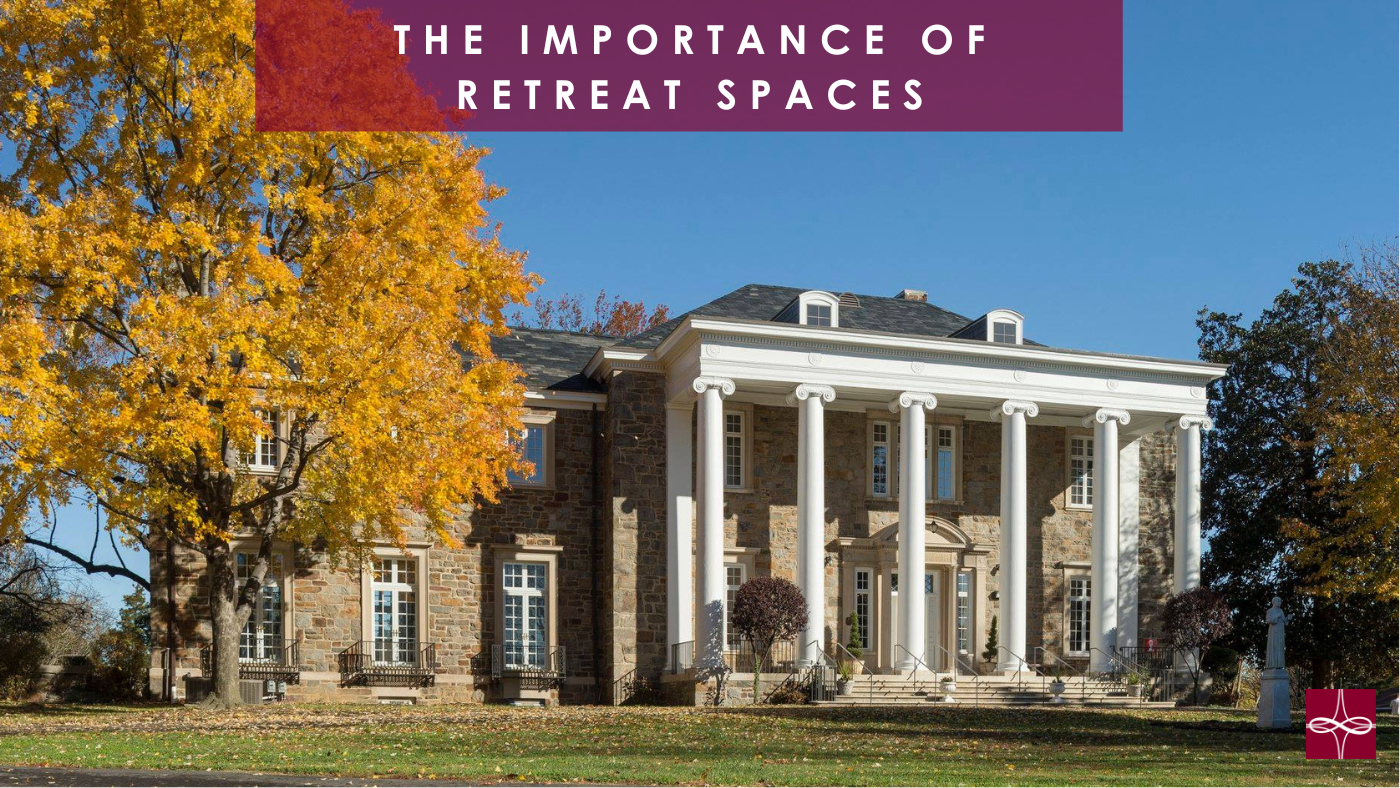

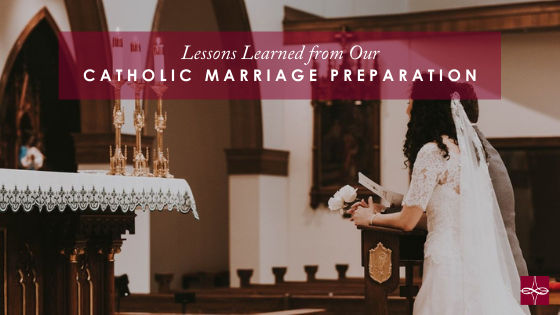

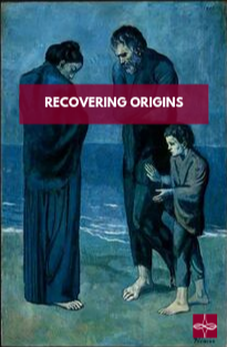



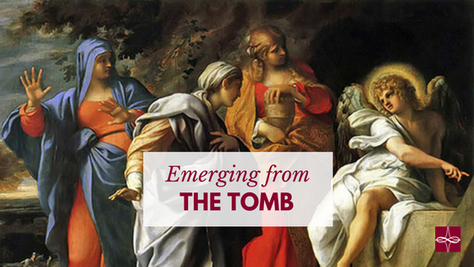






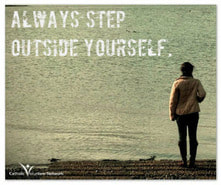
 RSS Feed
RSS Feed